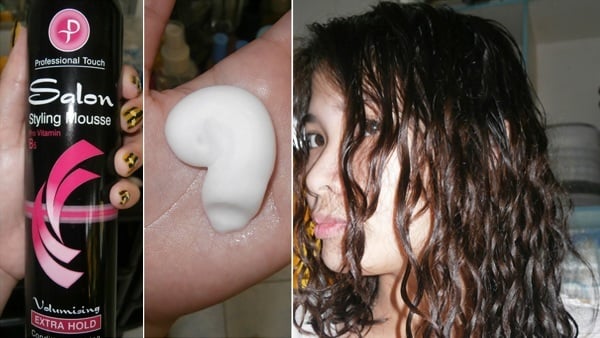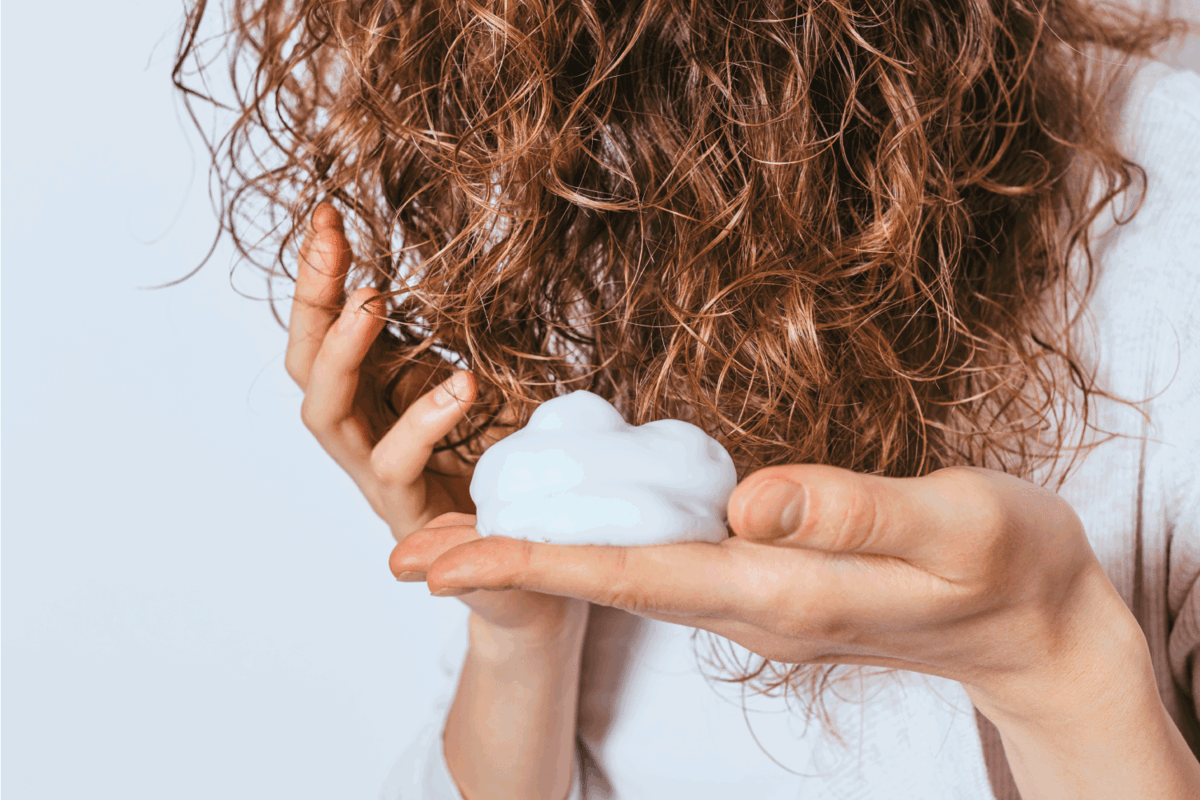Table Of Content

If so, you’re not alone, as this debate continues to bubble up on social media every so often. Though this can help the hair retain a clean look, using harsh shampoos can dry out the hair and the scalp and cause damage and irritation. A person should use care to not overwash their hair, with some recommending washing it no more than once every week or every other week. Since everyone has different types of hair and oil levels, it can be difficult to generalize when a person should wash their hair.
Hair loss
There are several factors that can increase your need to wash your hair. Beth Gillette is the beauty editor at Cosmopolitan, where she covers skincare, makeup, hair, nails, and more across digital and print. Follow her on Instagram for makeup selfies and a new hair 'do every few months. “Using ingredients like ketoconazole, selenium sulfide, and zinc pyrithione decrease levels of yeast that live on the scalp and cause dryness, itching and scaling — or what is commonly referred to as dandruff,” Dr. Khetarpal says.
What kind of shampoo product should you use?
A shampoo that doesn’t weigh down your fine, thin hair, for example, may extend the time between washings. Medicated shampoos may require a certain number of uses per week. If the thought of bacteria and yeast proliferating on your scalp wasn’t bad enough, your head may also start to stink. “Dirt, bacteria and the overproduction of sebum or oil can cause an unpleasant odor from an overgrowth of yeast,” Dr. Khetarpal says. If you don’t wash your hair for a while, oils that your scalp produces naturally accumulate around your hair shaft and can cause a yeast infection on your scalp. Caused by a yeast called Candida, it’s marked by an itchy, flaky rash.
This Is Exactly How Many Seconds You're Supposed To Spend Washing Your Face
However, a person can look for signs that they should wash their hair. No matter how often you wash dyed hair, always make sure that your shampoo, conditioner, and styling products are designed for color-treated hair. You may also hear about other remedies, such as yogurt, beer, and aloe vera. These may be used in between your regular shampoo and conditioner as masks, but shouldn’t replace regular hair washing sessions.
How Long to Wait to Wash Hair After Coloring - POPSUGAR
How Long to Wait to Wash Hair After Coloring.
Posted: Thu, 21 Mar 2024 07:00:00 GMT [source]
Washing with conditioner only is the most beneficial for curly, wavy, or dry hair, according to Hughes. When you are done scrubbing, comb it through and let it sit for a couple of minutes before rinsing it out like normal. She brings nearly a decade of writing and editing expertise, and her work has appeared in Allure, Health, Fitness, Marie Claire, StyleCaster, and Parents. She also has an unhealthy adoration for Tom Hanks and would like to please meet him one day, if you could arrange that. Dr. Kahen says it’s smart to also incorporate a scalp massager during your detox shampoo step, as it will boost effects and “gently and physically stimulate the scalp while cleansing,” which is good for healthy hair growth.
How do you know which shampoo to use?
It is less important to wash your face in the morning, but if you have oily skin you will benefit greatly from washing your face both in the morning and at night,” Brauer said. For those new to skin care or who like to keep a streamlined routine, increasing your cleansing time is an easy way to boost your results without adding any new products. The barrier to entry is also low — as long as you have a cleanser, it’s a skin care tip you can test for yourself. If you’re already got your preferred cleanser on hand, this is one skin care tip that doesn’t require buying yet another product or adding complicated extra steps.
Starting with really clean hair will help you go longer between washes. “I always teach my clients that shampoo is for the scalp,” says Cleveland. “You should be applying it only to the scalp area and massaging it in. When you rinse the shampoo gets diluted with water and runs down the hair shaft, which is more than enough to remove buildup on strands.” Equally as important as the way you shampoo is how you apply conditioner. “Conditioner is meant to replace the essential oils that may have been removed during the wash and it should only be applied to your hair, not the scalp,” says Cleveland.
How Often Should You Wash Your Hair? Here’s What Happens When You Don’t Get It Right
Once it’s dry, you can continue rocking the protective style or take it down to show off your heatless curls. Chemically treated hair — such as hair that has been permed, relaxed or bleached — may be dry and needs to be washed less frequently. Like all skincare, if your scalp is really bothersome and persistent, an over the counter hair treatment or mask isn't going to be a miracle worker, and you should head to your dermatologist. Of course, with almost everything in life, finding a balance is essential.

Act+Acre Cold Processed BHA Salicylic Acid Scalp Exfoliator
Chloe Metzger is the deputy beauty director at Cosmopolitan with nearly 10 years of experience writing about hair, makeup, nails, and skincare, with stories like the Curly-Girl Method and natural hair dyes. She's interviewed dozens of dermatologists and hairstylists over her career about how often you should wash which helped her write this story. For similar reasons, curly, coarse hair tends to be much drier than straight silky hair. In the case of curly hair, the oil needs to travel along corkscrew-shaped strands to moisturize to the ends.
Keep your favorite dry shampoo handy for days when you want to postpone shampooing a little longer. And don’t forget to use a little elbow grease when you’re washing with sulfate-free shampoo. When you wash your hair, focus primarily on cleansing the scalp, rather than the length and ends of your hair. The roots are often the oiliest part since sebum is produced from the scalp, while the ends tend to be drier.
Another great product to consider is a deep conditioner, which can offset some of the damage and keep hair looking healthy, Dr. Luke says. "The rinse is extremely important when washing fine hair and cold water helps to close the shaft, making the hair more smooth and shiny," he says. Start with a quality, cleanser like Fekkai Full Blown Volume Shampoo and use only a dime-size amount (really). Fine hair doesn't need a lot of shampoo and you'll be washing money down the drain otherwise. To test your hair's porosity, take another strand of hair and place it in a cup of water. If the strand floats to the top, then you have low porosity hair.
It’s important that you limit how often you shampoo your hair to keep it moisturized, strong, and retain your curl pattern. When it comes to beauty trends, this common question is often top of mind. This is different than the no-poo method, which has been gaining popularity. “A shampoo does not need to foam to cleanse.” Shampoos contain foaming agents to make suds.
For guidance, take a look at your hair type and styling choices. How often you wash your hair — and with what — depends greatly on your body, lifestyle, and preferences. The dirtier you get and the more oil you produce, the more often you have to wash your hair.

Dr. Zito has performed research at the Massachusetts General Hospital Cancer Center/Harvard Medical School, Rutgers University and University of Miami Miller School of Medicine, leading to over 100 authored peer-reviewed publications. He focuses his practice on skin cancer and surgery, artificial intelligence in dermatology, and utilizes the latest science to create personalized bioregenerative aesthetic medicine treatments. Nutrafol's hair growth formulas are designed to meet your bio-specific needs and help you target the root causes of hair loss. There are several factors to consider when determining how often to wash your hair, she explains, which are detailed below.
The basic answer, according to Seattle-based integrative dermatologist Elizabeth Hughes, is that you should wash it once it’s oily and feels unclean to the touch. You’ll also want to avoid heat-styling as much as possible—so no blow-drying after your daily showers—or you’ll strip and damage your strands, leading to dull, brittle hair over time. Over time, the chronic buildup of residue and sebum can threaten scalp health, Caspara explains. The NBC Select staff awarded this the best overall shampoo in our 2023 Wellness Awards. It has ingredients like matcha, apple and vitamin C to support your hair and scalp against free-radical and UV damage, according to Briogeo.
Lather up with a dandruff shampoo that contains zinc pyrithione, an MVP antifungal, which helps reduce itch, inflammation, and irritation by killing the excess bacteria that causes plaques. If you notice your hair is feeling a bit dry and your flakes are subsiding (usually in two to three weeks), cut down your dandruff shampoo use to once or twice a week and swap in a moisturizing shampoo instead to give your hair a break. Dry scalp can be caused by a bunch of reasons, some of which you can’t necessarily control—like age, skin type, environmental factors, and scalp conditions—and some of which you can, like shampooing too frequently with a too-harsh shampoo. Shampoos that use strong, drying sulfates (like sodium lauryl sulfate) can strip some of the oils and moisture from your scalp, leaving you tight, itchy, and possibly even flaky over time.











